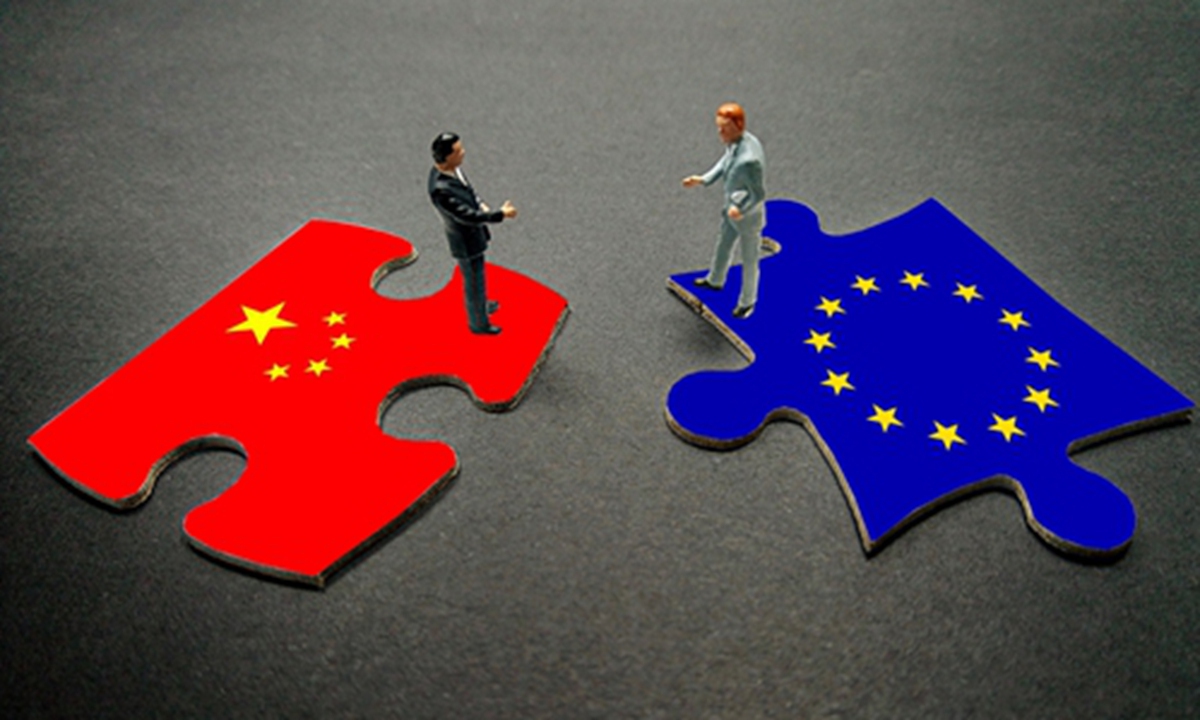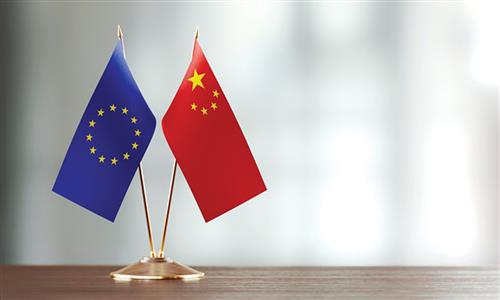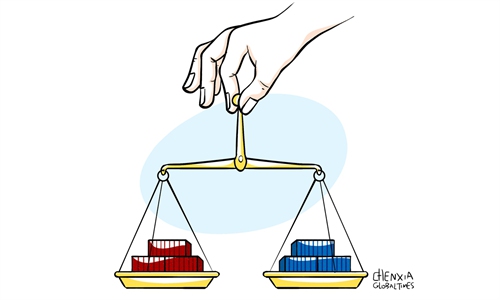
China-EU relationship Photo: VCG
There has been a shift in the West's relations with China at large, driven in part by the US.In the space of a couple of weeks, US President Joe Biden has met with Chinese President Xi Jinping in San Francisco, Australian Prime Minister Anthony Albanese travelled to Beijing, while the UK appointed David Cameron, a dovish figure, as its foreign secretary. In line with this, the media has sought to alleviate tensions with China.
This shift is not a comprehensive reset of China's relationship with the West, as the US still intends to "compete" with Beijing, but rather on a more stable footing. Instead, it is akin to a détente, and it aims to set new boundaries to prevent the West's ties with China from falling into a catastrophe or explicit Cold War. However, it nonetheless remains the most significant breakthrough in relations since China-US ties began to deteriorate in 2018.
Despite the US and its allies calming things down, there is one bloc which stands alone: the European Union. Under its current leadership, the EU has taken an increasingly hawkish tone on China and begun to aggressively exert what is described as "de-risking." Part of the grievance is aimed at Beijing's so-called "unfair" economic practices, whereby the development of China's own industry is increasingly squeezing out competitive European firms that have long benefitted from the Chinese market, for example, Volkswagen and its cars.
Europe has taken an increasingly uncomfortable and aggressive stance regarding this, arguing that Beijing must offer them more market access and has threatened trade measures, even though, as frequently mentioned, the EU had secured a deal with China in the year 2020 to do just that, known as the Comprehensive Agreement on Investment (CAI), but ultimately refused to cooperate under US pressure. Now, the EU seems to believe that these market concessions ought to be unilateral, and that China somehow owes a "favour" to Brussels pertaining to trade.
This negative attitude has only been reinforced by the current government in Germany, which owing to the influence of the Green Party in the ruling coalition, is China-sceptic. Although the European Union is a diverse bloc of 27 states who all have differing interests and worldviews, the "big wigs" of the bloc seem to be intent on reducing Europe's economic ties with China despite the sluggish growth they have incurred, the obvious lack of feasible alternatives elsewhere, and most notably being out of step with other Western countries who have decided to engage for now.
Soon, the EU-China summit will be held in Beijing, which may go some way to explaining some of the hostile rhetoric which has been espoused by members of the commission. However, this posturing will not do Europe any favours as the continent ultimately has a weak hand. First of all, its current subservience to transatlanticism has left it without clear strategic autonomy which has put it on the back foot as a follower in many critical geopolitical issues of the time.
In reference to economics and trade on this issue, the EU has failed to gain any concessions from the US regarding the penalizing and protectionist provisions of the Inflation Reduction Act which has damaged European competitiveness in conjunction with the erosion of Europe's energy affordability from the Russia-Ukraine conflict. Rather than confronting the US' policies regarding items such as electric cars and renewable energy goods, the intent seems to be to challenge China instead, but there is no reason why in any such circumstances Europe would come out as "better off" in such a trade war, as if it has conceded that it cannot truly "compete" with Beijing.
It goes without saying that Europe's best interest remains rooted in securing win-win cooperation with China. If the EU seeks more market access from Beijing accordingly, then it should advance the CAI agreement and place its trust in an acceptable compromise that reflects the reality of European-Chinese intercontinental integration. Some of the "alternative" projects that the commission has vested itself in to try and "de-risk" from China, such as the India-Middle East-Europe Economic Corridor or its own Global Gateway, lack credibility and will never be taken seriously.
Europe should stop geopolitical crusading, picking fights and in this case ultimately isolating itself on the global stage. During the era of Trump, the EU positioned itself as a sensible actor which recognised the importance of its China relationship. This sensibility has been lost owing to the ideological and destructive approaches of those in charge. If the US and its allies are rethinking their China approach, it is time for Europe to do so as well, lest they be left isolated and not invited to sit at the table.
The author is a political and historical relations analyst. opinion@globaltimes.com.cn


